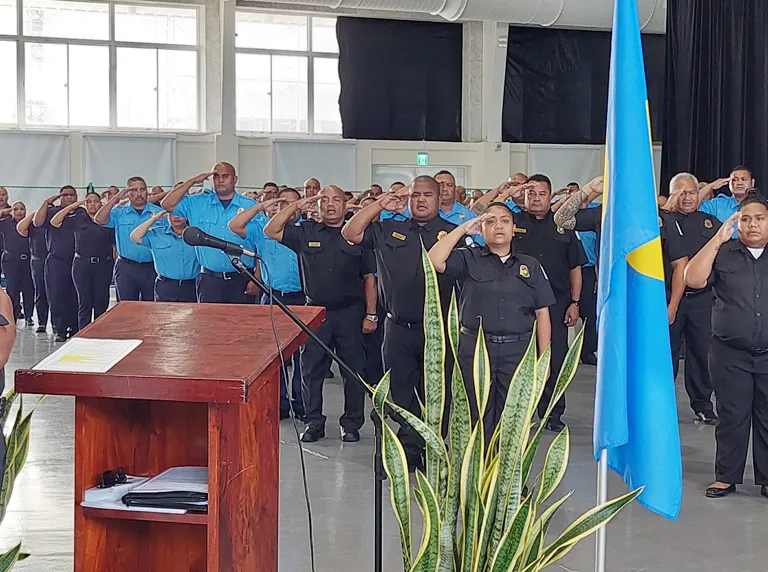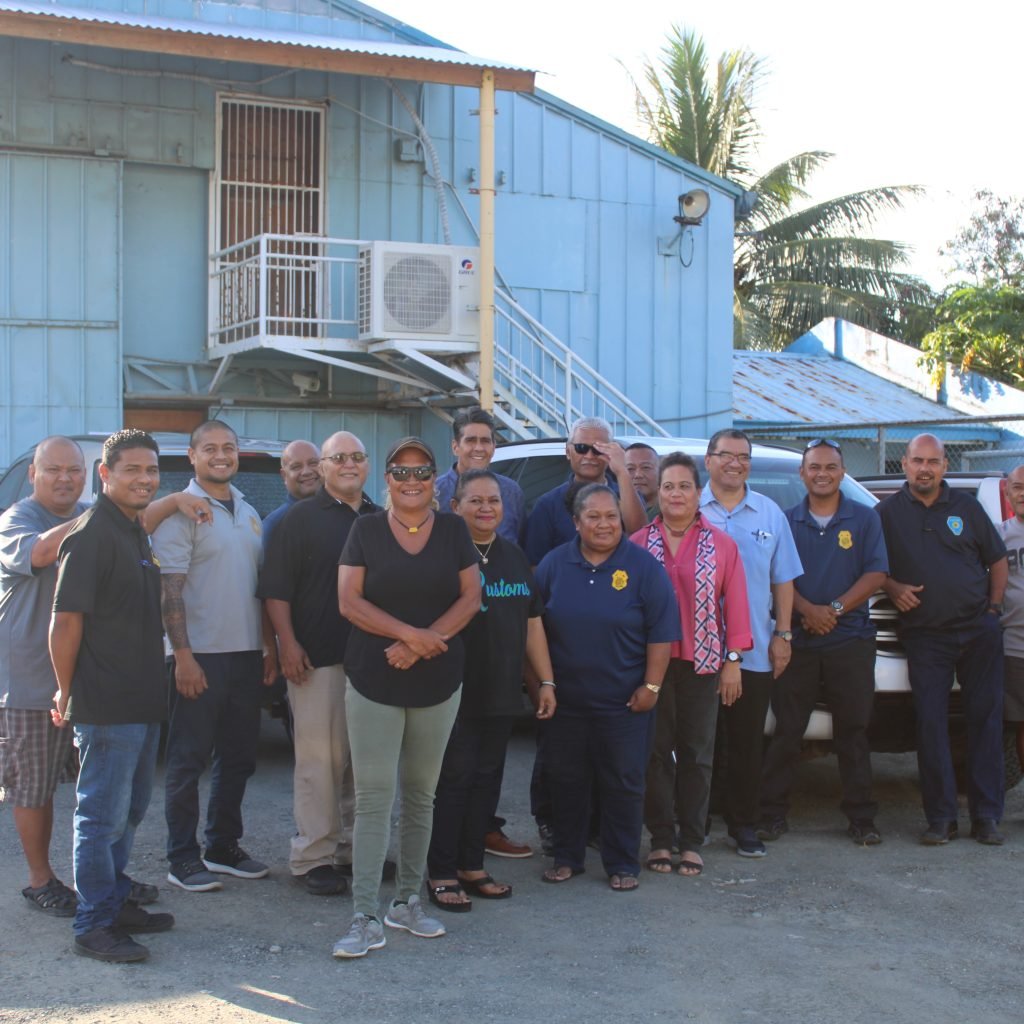
Our Mission
To protect our borders, collect revenue and facilitate legitimate travel and trade
Our Vision
To be recognized as an efficient, effective and innovative Customs, Immigration and Biosecurity service
The Bureau of Customs and Border Protection is empowered to promulgate rules and regulations to carry out the provisions of Division 2 of Title 40 of the Palau National Code Annotated (PNCA), as amended. The primary mandates of the Bureau include revenue collection, trade & travel facilitation, border management & enforcement, security and compliance.
The Bureau reports to and works under the Ministry of Finance among 8 other Bureaus and Offices, which provide essential services to the government as well as the public. Pursuant to RPPL 11-7, the law reorganized Immigration and Biosecurity under the Bureau of Customs and Border Protection (BCBP), Ministry of Finance (MOF). On June 2021, the President of the Republic of Palau approved the Executive Order 450 that reorganized the Ministry of Finance.
Therefore, the Bureau of Customs and Border Protection oversees 5 Divisions which includes:
1) Border Management & Enforcement
2) Revenue & Trade Facilitation
3) Corporate Services
4) Immigration
5) Biosecurity
Thus, we have continued to maintain our existing responsibilities by protecting and securing Palau’s border, promoting and safely facilitating trade and travel, and collecting revenue. BCBP employs a total of 78 personnel, which are 42 from Customs, 26 from Immigration and 10 from Biosecurity. We all strive to carry out our primary mandates through performing and maintaining our roles and responsibilities as officers of the law and security within the Republic of Palau’s borders.
Customs
Officers
Immigration
Officers
Biosecurity
Officers
BUREAU HIGHLIGHTS
Key Focus Areas
Strengthen collaboration between border agencies, law enforcement, relevant agencies and stakeholders.
Manage and prevent risks from reaching our borders.
Maintain a high presence across all ports and build on existing port security arrangements.
Detect, interdict and disrupt illegal border activities.
Strengthen intelligence and enhance risk management, compliance and control processes.
Adopt technological advancements aimed at operational improvements.
Build and modernize new CIB facilities and infrastructure at the Port or current sites.
Ensure that duties, taxes and fees owed to the Government continue to be processed and collected.
Introduce modern, simplified and harmonized procedures and processes for fee collection and compliance.
Implement effective internal controls to protect the duties and taxes.
Enhance capabilities between tax and customs.
Implement tax compliance and performance measures.
Develop capabilities for analysis and reporting of data and statistics.
Conduct business process improvements and increases the scope of electronic interaction with taxpayers to boost staff productivity and taxpayer service.
Promote harmonization throughout ports of entry.
Modernize and harmonize procedures and processes specific to trade and travel.
Introduce a Single Window environment.
Transition to a digital customs system.
Promote and improve cooperation with customs, immigration and bio-security stakeholders.
Establish and implement the WCO Guiding Principles on how to develop a customs to business engagement / partnership mechanism.
Embed integrity measures into CIB in order to ensure good governance.
Establish systems to ensure professionalism of the workforce.
Develop a people-centered service delivery framework to ensure the delivery of effective and efficient customer services.
Enhance human resource and technical capacity.
Strengthen post-clearance audit.
Strengthen risk management framework.
Enhance the use of technology and innovation across all departments.

OUR Chiefs

John Tarkong Jr.
Director, Bureau of Customs & Border Protection

Clint Mersai
Chief, Division of Border Management & Enforcement

Robert Tarkong
Chief, Division of Corporate Services

Bolton Tengoll
Acting Chief, Division of Immigration








